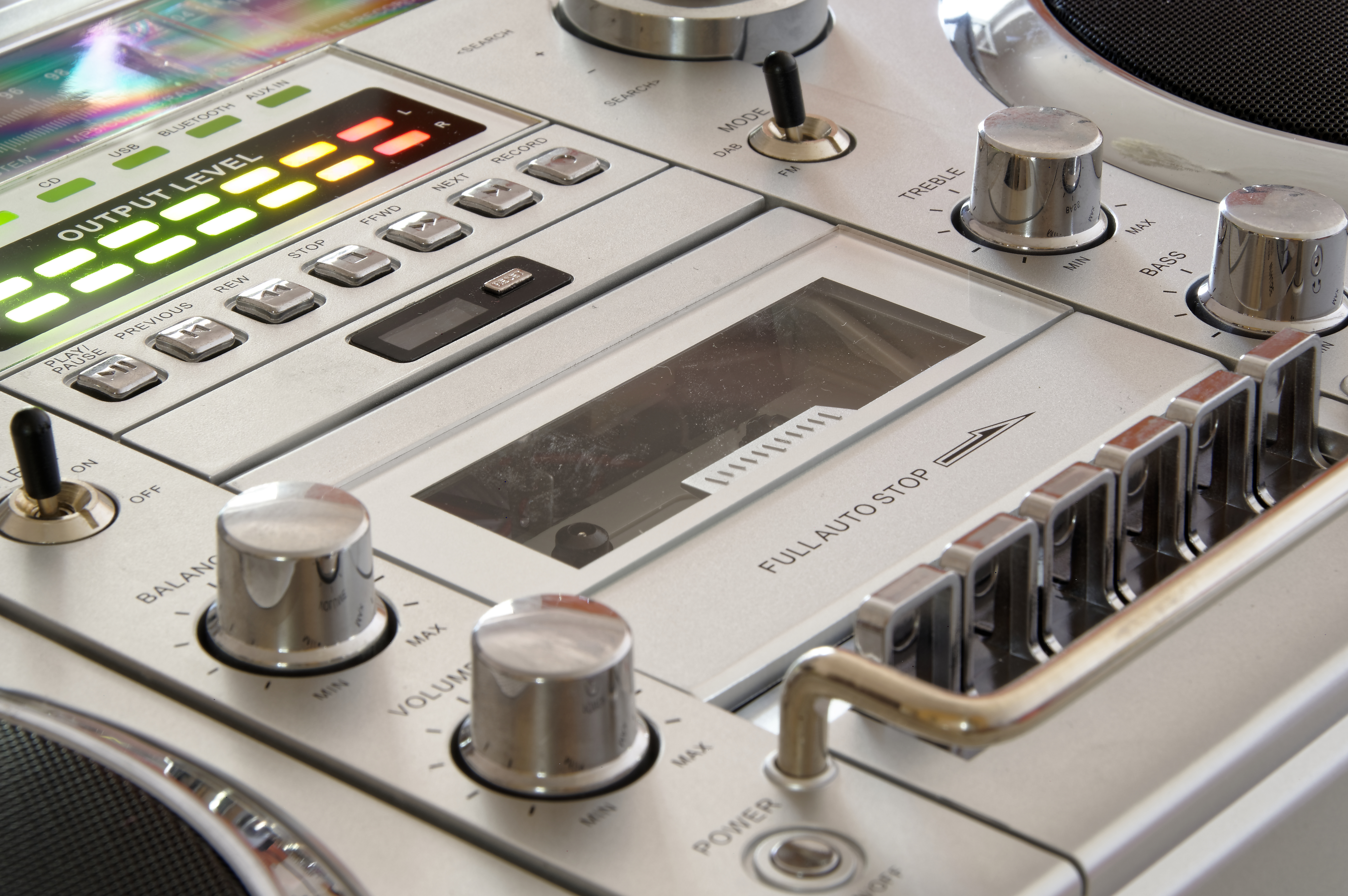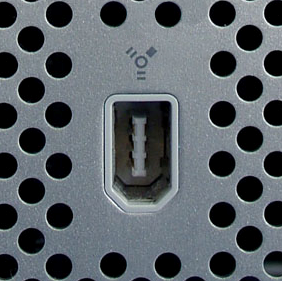- cross-posted to:
- [email protected]
- cross-posted to:
- [email protected]
The lack of physical media will just drive more people to piracy.
it’s not piracy if I’ve paid for it
Piracy is resilient but there is no natural law that says piracy will always be available.
There will be a TPM 3.0. All those mechanisms in XBOX Series and PS5 that are actually effective for extended periods at preventing mass piracy, like one-directional fuses and minimum software updates for new releases with per-device keys, are not going to disappear. Tech and media companies are now working together to bypass the user in trust chains, so they only have to trust each other.
In a streaming-only world, I predict there will be a time soon where pirated content is not a bit-perfect copy because the digital environment is fully locked down. Maybe an analog reencode of display output will be a workaround. But like TPM, HDCP will advance, and maybe that avenue will be cut off too.
Once we lose physical media, we may be cooked.
I am not knowledgable about it but why care about HDCP if some already cracked Widevine?
HDCP isn’t DRM’s ultimate form of course. HDCP “3.0” or its successor will not be so easily cracked, and Widevine is not as cracked as past protection schemes have been.
All of our non-Linux platforms will tighten DRM over time. Apple is already locked down. Android is moving to require boot-lock strong encryption and authentication to access sensitive apps, which is very difficult to spoof. Media companies will require that for future versions. Windows is on the TPM train. HDCP is just part of that “trust” chain, and it absolutely will be strengthened to match the base protection.
Edit: Didn’t realize HDCP is already at 2.2. https://en.wikipedia.org/wiki/High-bandwidth_Digital_Content_Protection . Some interesting developments - namely a reminder that movie studios will also use lawsuits under the DMCA to try to suppress any technology that defeats DRM.
Media is still physical. Instead of a tape or CD you’re carrying a hard drive.
Or selfhosted nas
You can’t carry my NAS, it’s bigger than yours.
You don’t need to carry your nas as your owned, selfhosted nas carry your data for you
i was a recording engineer during the time analog recording was just starting to get surpassed by digital, and of course there are still people who will die on the “analog is always best forever and ever” hill
but it’s to the point where if you’re not a completely-obsessed-to-the-point-no-one-can-stand-being-around-you audiophile, you’re not going to be able to tell the difference between an analog source and a digital one pretending to be analog
the pros of digital just simply can’t be outweighed by the pros of analog anymore
photography might be an area where digital hasn’t caught up, since film’s resolution is down to the molecular level, but that won’t be the case forever (if it even is the case, i’m not a photographer)
photography might be an area where digital hasn’t caught up, since film’s resolution is down to the molecular level
Film resolution is limited by the size of the silver halide crystals that make up the light sensitive layer of the film. Crystals can come in different sizes, but their sensitivity to light depends on their size - generally you need pretty large crystals for usable photographic film, somewhere between 0.1 and 10 microns (depending on the film ISO rating) - about 3-5 orders of magnitude larger than what you would consider molecular scale.
When the film is developed the crystals are visible as film grain limiting the resolution in some ways similar to pixel size of a digital camera (although there are differences, since the crystal size is not completely uniform but rather has a specific distribution, creating a more random effect than the regular pixel grid of digital cameras)
The pixel sizes on modern high resolution digital camera sensors are actually similar, down to 0.5 micron. It’s hard to make an exact comparison, but I have seen estimates that you need a full frame digital sensor of somewhere between 10 to 50 megapixels to equal the resolution of 35mm ISO 100 film.
And modern sensors are much more light sensitive than film, which allows you to shoot more optimally and give you more flexibility (less exposure time, potentially higher f-stop with better lens resolution, lower ISO, less light, etc.) and therefore achieve potentially better results in more conditions. Add to that the hassle and costs of working with film, and most professional photo work is now done in digital as well. Film is generally only used for stylistic purposes, by purists who are not satisfied with digital simulation.
i was a recording engineer during the time analog recording was just starting to get surpassed by digital
I’ve got a cassette of some parody songs made by a local radio station that’s basically going to become lost media if I don’t digitize it myself. The only cassette players I currently own are a Walkman and one of those retro-style-but-not-old CD/cassette/record combo players. Do you have any advice on what I should do to get the best quality transfer that I can?
1st thing i would do would be call the radio station–they might have a digital copy already, since it’s a performance. or they might have the equipment you’d need to get it digitized. just don’t leave the tape with them, unless you make a copy.
failing that, the public library might also have tape to digital conversion gear, depending on how big/well funded the library is.
last resort would be a recording studio, which might cost lots of money per hour, and it’ll have to be converted in real time–play the tape from start to finish, while the computer ‘records’ it. if the studio don’t have a top of the line gourmet tape deck, then they can take just take the output of your own player and plug it into protools, just ask for the highest resolution/bitrate in a lossless format
edit: i forgot another option, if you’re in the states. you might try your state archives, just google the name of your state along with “archive”, it should be a .gov address. they might actually be interested in the recording for their own digital collection, and would definitely have the necessary gear to get it digitized. the tricky part is they would need the permission of the radio station and/or whoever owns the copyright to post it publicly
1st thing i would do would be call the radio station–they might have a digital copy already
It hasn’t existed since 2003 (there’s still a station on that frequency, but it’s changed ownership and programming a couple of times). Maybe they still have the old master copies anyway? Or I suppose I could try to track down the DJs who produced it…
The library and state archives ideas are good suggestions; I’ll look into them.
last resort would be a recording studio, which might cost lots of money per hour, and it’ll have to be converted in real time–play the tape from start to finish, while the computer ‘records’ it. if the studio don’t have a top of the line gourmet tape deck, then they can take just take the output of your own player and plug it into protools
I mean, if using my own player might be considered “good enough,” couldn’t I just hook my Walkman’s headphone output to the line in or mic input on my computer and do it myself? In addition to the audio built into the motherboard, I also have a relatively-cheap USB audio interface, which I guess isn’t as good as it could be (it’s 48KHz, not 192KHz) but would still be better than nothing.
The main thing is I’m not sure how I need to set the volume on the Walkman (it also apparently has a feature called “AVLS” that might or might not be relevant) or if I need an amplifier or something. I also don’t know if I need to do anything special with ALSA/JACK/PulseAudio and know basically nothing about how to use Ardour or XMMS (I’m aware they exist and are the right type of software, but that’s about it).
if using my own player might be considered “good enough,” couldn’t I just hook my Walkman’s headphone output to the line in or mic input on my computer and do it myself?
absolutely, i was responding to your question
any advice on what I should do to get the best quality transfer that I can?
other users have mentioned you can get a converter online, but the “you get what you pay for” maxim applies to electronics maybe more than anything else. the difference in quality between “consumer” and “professional” audio gear is getting narrower, but it’s still there-- everything just depends on how much you want to spend
not sure how I need to set the volume on the Walkman
if the walkman has a “line out” port, you’d use that to plug into your “line in” on your recording device. you can use the headphone jack, but that signal is already amplified, so you’ll have to adjust the output volume to where the input meter is the highest it can be without ever clipping (going ‘red’). older consumer gear will have more noise (hiss) than anything professional. especially an amplified signal, as in a headphone jack. and that’s where the money for pro stuff goes–lower noise floor. more information
edit: on a whim i did some looking and found this lol
you could just buy that, dump the recording down to a SD card, and then return the device the next day. done.
i had no idea they made such things, but i haven’t really kept up with the music/audio industry since i left
While the quality won’t be particularly good, a cheap cassette-to-MP3 converter off Amazon can ensure that the material at least isn’t lost forever. Run the tape through 2-3 times to make sure you get at least one decent copy of everything. Once you’ve got that done, escalate as suggested by solsangraal to get a better transfer.
That’s actually very easy to do and you don’t need any special equipment. Simply use a male-male 3.5mm cable and connect one end from the stereo output of the cassette player and the other end into the microphone jack of any computer you own. Play the cassette - you can test the audio quality by running
arecord -f cd - | aplay -- you will have to tune the volume output of the cassette player and the input sensitivity of the microphone.From there, if you’re paranoid, you could use
arecordto save the output to a.wavfile and encode it once the recording is done, but I had no problem just usingoggencdirectly on the piped audio. The final command looked like this:arecord -f cd - | oggenc -q 5 -o file.ogg -(change to-q 10if you want lossless encoding).I’m not sure if this is the best quality per se, but I would definitely recommend it over using specialized equipment like cassette-mp3 converters. The problem with those devices is that if they use underpowered hardware, you might experience buffering issues where the encoding hardware can’t keep up with the audio stream or something like that. But doing it on a computer ensures that you will have all the processing power you need to make sure that this doesn’t happen.
Good luck! I found it very easy to do - it took 5-10 minutes of setup.
i do analog photography for a hobby, in the grand scheme professional analog photographers only account for like less than 1 percent and current film manufacturers are only able to exist because some high profile film directors insist on shooting film (think nolan) and film students. when theyre no longer around film will die soon.
there is almost no new film camera produced and the price of film keeps increasing to unreasonable prices.
no new film camera produced and the price of film
it’s the same with analog audio. reel to reel tape actually disappeared for a bit because no one manufactured it anymore, but some company (forget who) finally started making it again for the audiophiles. one reel of tape
iswas, 10 years ago, ~$300 and gives you 15 minutes of recording time, if you’re running it at high speed for the best quality. no idea what the state of the business is in now, i was never a gear head and never kept up with any of it
I still enjoy looking through my albums and the process (and sound) of playing a record.
Back in the day, I had just envisioned storage media getting more and more dense, to the point where we might be using some kinda holographic cube or some shit in the future to store petabytes of data.
I never thought of the entire world just constantly streaming and downloading everything around the planet on demand. The state of Internet bandwidth in those days made it hard to imagine.
Same. And HDD space was so unbelievably expensive vs the cost of physical media that it just didn’t register that it might be cheaper to host it all in the cloud even if internet speeds improved. A CD/DVD costs pennies to make (a bit of metal encased in plastic), a HDD costs orders of magnitude more for the same capacity. I thought surely we’d move to more dense, optical media.
Physical media is clunky and obsolete, you can store the contents of an entire 90s era video store on a cigarette pack sized device nowadays. The solution to streamer wars is to stop pussyfooting around and just pirate shit.
*An SSD the size of a stick of gum
I have insisted on physical media for my stuff since the dawn of MP3’s - in the form of hard disk drives. That’s the physical media MVP in my book.
I haunt estate auctions wherever I go. Physical media in the form of CDs and LPs is at a prime. Unless it’s old classical or country the prices skyrocket. The LP could be scratched to hell, they only ever show the sleeves in pics, but it doesn’t matter.
Physical media is at a premium. LPs used to be a dollar or so each 5 years ago. Sometimes even 4 for a dollar. Now, minimum $5 each to start. Unless it’s country or classical.
Every media is physical. The question is, where is it located.
A properly backed up and sorted digital collection is superior to a bunch of disks laying around, at least if we don’t consider the pleasure and pride some collectors take in having exactly the latter. But when we allow this data to be stored in a place we don’t own, real and serious problems arise.
The only downside to the loss of physical media - whether it be music, movie or software - has been the inverse relationship to how much of any of those you actually own.
The only downside to the loss of physical media
and the fact that it can easily be stolen. I’ve had multiple large CD catalogues stolen, both in college and as an adult. Thousands and thousands of dollars of music <poof> gone.
No one has stolen my ripped music.
YMMV, but CDs are easy to gank enmasse. If it was all vinyl they would have had to take multiple trips pushing a dolly.
Really? No company has ever stopped supporting something you bought so that it was no longer usable? No lost software, hardware, games, apps? Gameservers shut down so you can’t play online? Live connections shut down so you can’t start the game? Licensing servers offline so you can’t open the software at all? No lost identifying information in hacks? No service bankruptcy or buyout cost you a purchase? You don’t see as having to pay, over and over again, to listen to the same songs that you no longer own, as a kind of theft?
All of these have a price. Maybe you could rationalize it in the legalese of some EULA that it isn’t theft when you lose any of these things, but nonetheless they were taken from you without compensation. Theft of a legal kind.
Music is really a terrible example here because the CD is both the content and the physical proof of ownership.
But, in the modern era, CDs can easily be archived and stored in bulk…so unless the novelty of physical media is a turn-on for you, turn-on for you, turn-on for you, turn-on for you, there’s not much sense in carrying it around, physically, in the real unprotected world.
Much better to just rip it and carry around hundreds of albums on the phone, and keep the originals in the 300-CD changer carousel, or on a shelf, or in a musty box in the basement. Or just use a streaming sub service.
Did you reply to the right comment? My comment was about theft, not arguing about the portability of digital content. Obviously low-cost high density storage has made the greatly reduced for low density media, especially older analog types.
you’re picking a fight that doesn’t exist.
have fun talking to yourself.
It’s not dead and never will die. It just will never be mainstream ever again
What I liked about tape and CD, is that it wasn’t too difficult to write/record. Before mp3s and filesharing, you could still make a copy, or a mixtape (playlist).
The main strength that physical media has, is that it is completely offline, it is physically at hand, and it can be obscure stuff you will never find online.
I recently got back into minidiscs and it’s great.
Hell yeah. Few things are more satisfying than sliding a MiniDisc into a drive and feeling it click into place.
deleted by creator
Yup, I only buy physical media so I can rip it. If I could buy DRM-free digital media, I would absolutely prefer that. But I can’t, so here we are.
If I can’t find something on physical media from a first party seller, I have no qualms about piracy, but I do make an effort to legally aquire what I can.
deleted by creator
physical media will always be superior
torrents are the new physical media
both statements can be true
I hate physical media. I was growing up with the worst type, VHS, so subconsciously I associate every physical media with VHS. lt was bulky, you always had to roll it back. If multiple things were recorded on the same tape, you had to write down where they start and you had to stop seeking at the correct time. If you copied from one tape to another quality worsened.
Okay, but now there are much better options besides VHS. And I for one line physical media. At the end of the day if my internet is out or something is removed from a service, I can still just pop in a disc.
Sorry about your experience with VHS.
deleted by creator
That’s the whole point. I’m going to guess that the media on your flash drive was ripped from physical media at some point in the chain.
Having access to the physical media gives you the ability to do what you want with it… Want it on a flash drive? Great do it. Want it on your plex sever so you can stream it yourself? Cool. Want to put it on a modded ipod classic? Cool.
VS. The way the Music / Film industries want you to have to access this data. They don’t want it on your plex server, they don’t want it on your flash drive.
Mark my words when physical media dies they will find more ways to crack down even harder on us enjoying content the way we want. Hell now a days they even restrict what browsers you can use to access media.
deleted by creator
And I can pop-in a thumb drive.
I never liked having to carry a bunch of shit around. Now i have a small device in my pocket with hundreds of CDs worth of capacity.
I don’t hate it, but as someone who’s had to pick up and move repeatedly it’s just too much stuff. I buy digital books (would buy digital movies if buying them was actually buying them), and did buy digital music when buying it was actually buying it (back in the days of Google play music when you actually could just do whatever you wanted with the tracks you bought so long as you downloaded them).
I think part of what people are neglecting to understand is the digital media is physically stored somewhere. It’s not just out there in a cloud. It has to be maintained just like physical media does. Don’t store a cassette/VHS tape properly and it won’t be around for a long time. It’s honestly the same with CDs, DVDs, and Blu-ray. I’m sure it was the case with 8tracks and Mini discs, and so on too. When the medium through which that media is housed goes, so does the media.
This discussion is pretty interesting to me because the only reason a lot of people seem to be against digital media is their view of how the license for it differs from the license for physical media. It’s the same license but one of them gives the company licensing the media more control than the other and that’s what people don’t like. If companies would stop taking things people paid for from them, this wouldn’t be an issue.
I like how they used a shitty cheaply made chinese cassette radio for the front picture. I can’t even really fault them; all the remotely decent ones are decades old and collector’s items…
Same goes for turntables, decent new ones that are selling for a couple of thousand dollars are still garbage compared to even an entry-level Technics deck from the 80s.
Some time ago, the industry seemed to have standardized on a cheap-ass all in one platter/motor/stylus assembly that’s just dropped into every modern record player now. I think I started seeing that thing everywhere in the late 80s. They did the same to tape players. It’s now just an entire chassis containing the play head, motor, etc where they just make a shell to go around it and a circuit board to drive it/amplify it.
Yep, that same old BSR mechanism that was invented in the mid-80s. Decent casette players use Tanashin mechanisms (or clones rather since Tanashin itself doesn’t make them anymore AFAIK) and as long as they have metal flywheels and proper erase heads they’re ok.
Forget about 3-Head Closed Loop Dual Capstan, though, you’re never gonna find that on a modern deck.
Good riddance.














